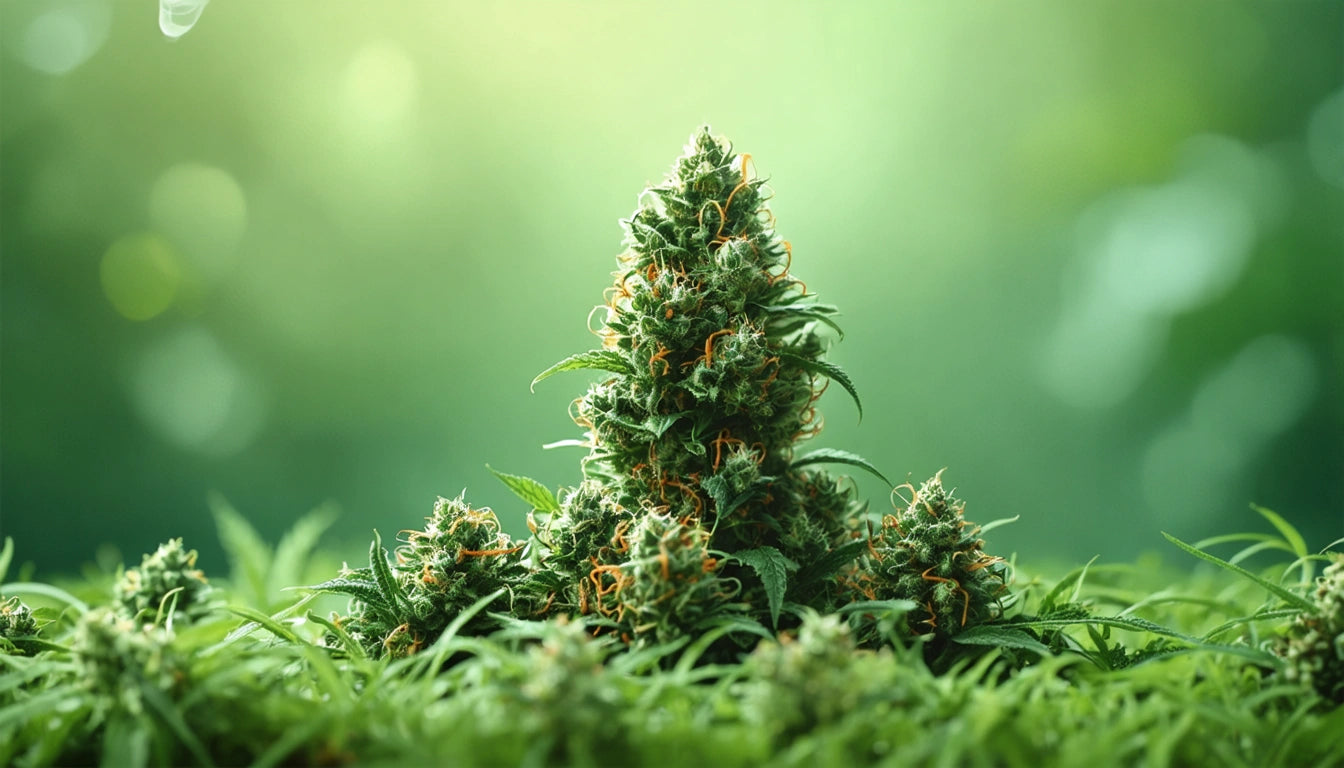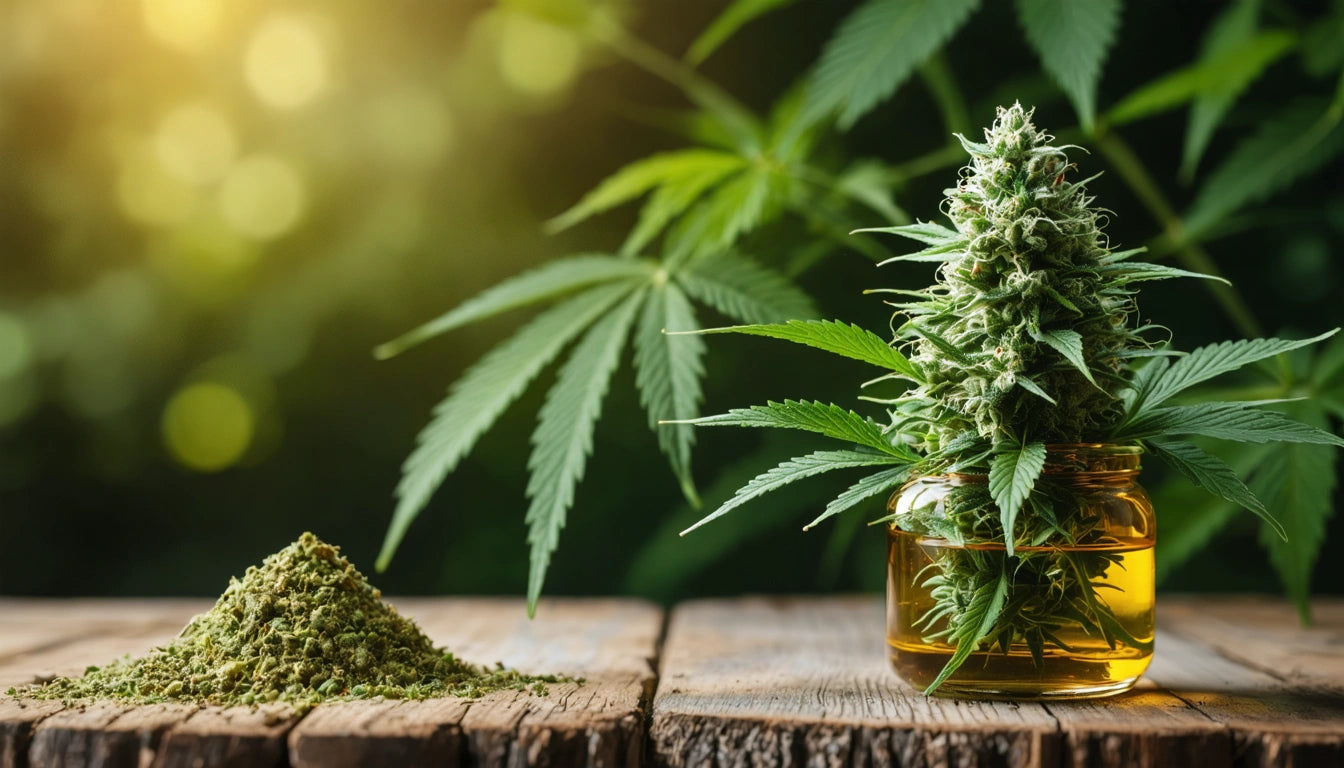Table of Contents
- Qualifying for Medical Cannabis with Depression and Anxiety
- Research on Cannabis for Mental Health Conditions
- Effective Cannabis Strains for Depression and Anxiety
- Consumption Methods and Dosing Considerations
- Potential Risks and Considerations
- The Future of Medical Cannabis in Mental Health Treatment
Exploring Medical Cannabis as a Treatment for Depression and Anxiety
The question of whether you can get medical weed for depression and anxiety is becoming increasingly relevant as more states expand their medical cannabis programs. While cannabis has been used informally for mood regulation for centuries, its official recognition as a treatment for mental health conditions varies significantly by location and continues to evolve alongside emerging research.
Qualifying for Medical Cannabis with Depression and Anxiety
Whether depression and anxiety qualify for medical cannabis depends primarily on your state's specific regulations. Currently, most states with medical cannabis programs fall into one of three categories regarding mental health conditions:
- States with explicit approval: Some states like Pennsylvania, New Jersey, and North Dakota specifically list anxiety disorders as qualifying conditions.
- States with discretionary approval: States like California, Oklahoma, and Missouri allow doctors significant discretion in recommending cannabis for any condition they deem appropriate, including depression and anxiety.
- States with limited approval: Many states only approve anxiety or depression when associated with another qualifying condition like PTSD or terminal illness.
To determine eligibility, patients should consult with healthcare providers who specialize in cannabis medicine. These practitioners can evaluate symptoms, review medical history, and determine if cannabis might be appropriate based on state regulations.
Research on Cannabis for Mental Health Conditions
The scientific understanding of marijuana's relationship with depression continues to evolve. Research suggests that cannabis, particularly strains with balanced THC:CBD ratios or CBD-dominant profiles, may help alleviate certain symptoms of depression and anxiety.
The endocannabinoid system plays a crucial role in regulating mood, stress responses, and emotional memory processing. THC and CBD interact with this system differently, with CBD showing particular promise for anxiety due to its anxiolytic properties without the intoxicating effects of THC.
Effective Cannabis Strains for Depression and Anxiety
For Depression
Strains recommended for depression often feature uplifting, energizing effects that combat lethargy and improve mood. According to research on cannabis strains for depression, varieties with terpene profiles rich in limonene and pinene often provide mood elevation. Popular options include:
- Jack Herer (sativa-dominant with mood-boosting properties)
- Pineapple Express (hybrid known for energetic, clear-headed effects)
- Blue Dream (balanced hybrid with gentle mood elevation)
For Anxiety
For anxiety management, the best cannabis strains typically feature higher CBD content or specific terpenes like linalool and myrcene that promote relaxation without triggering paranoia. Recommended strains include:
- ACDC (high-CBD strain with minimal psychoactive effects)
- Granddaddy Purple (indica with calming properties)
- Harlequin (balanced CBD:THC ratio for gentle anxiety relief)
When selecting products for mental health conditions, consistent dosing is crucial. Many patients find that pre-rolled options with precise cannabinoid measurements allow for more predictable effects and easier dose management compared to traditional flower consumption.
Consumption Methods and Dosing Considerations
The method of consumption significantly impacts how cannabis affects mental health symptoms. Common methods include:
- Inhalation (smoking/vaping): Provides rapid onset (5-10 minutes) but shorter duration (2-3 hours). Useful for acute anxiety episodes.
- Tinctures/oils: Moderate onset (15-45 minutes) with longer duration (4-6 hours). Good for daily management.
- Edibles: Slow onset (45-90 minutes) but longest duration (6-8 hours). Better for persistent symptoms but requires careful dosing.
For both depression and anxiety, the therapeutic window can be narrow. Starting with minimal doses (2.5mg THC or less) and gradually increasing allows patients to find their optimal dose without experiencing adverse effects like increased anxiety or cognitive impairment.
Potential Risks and Considerations
Understanding the complex relationship between cannabis and anxiety is essential, as cannabis can both alleviate and exacerbate symptoms depending on multiple factors:
- THC sensitivity: High-THC products can trigger or worsen anxiety in susceptible individuals
- Dependency concerns: Regular use may lead to tolerance and potential psychological dependence
- Medication interactions: Cannabis may interact with commonly prescribed antidepressants and anti-anxiety medications
- Bipolar disorder caution: Cannabis use may potentially trigger manic episodes in bipolar patients
Patients should maintain open communication with healthcare providers about cannabis use, especially when using other medications. Regular assessment of benefits versus side effects helps determine if cannabis remains an appropriate treatment option over time.
The Future of Medical Cannabis in Mental Health Treatment
The landscape of medical cannabis treatment for mental health conditions continues to evolve rapidly. Ongoing clinical trials are investigating specific cannabinoid formulations targeted at depression and anxiety disorders. As research advances, we may see:
- More standardized product recommendations based on specific mental health conditions
- Improved guidelines for healthcare providers on appropriate dosing and administration
- Expansion of qualifying conditions in more conservative medical cannabis states
- Development of novel cannabinoid medicines with optimized therapeutic profiles
While cannabis shows promise as a complementary treatment for depression and anxiety, it works best as part of a comprehensive treatment approach that may include therapy, lifestyle modifications, and in some cases, conventional medications. Patients should approach medical cannabis as one potential tool in their mental health toolkit rather than a standalone solution.











Leave a comment
All comments are moderated before being published.
This site is protected by hCaptcha and the hCaptcha Privacy Policy and Terms of Service apply.